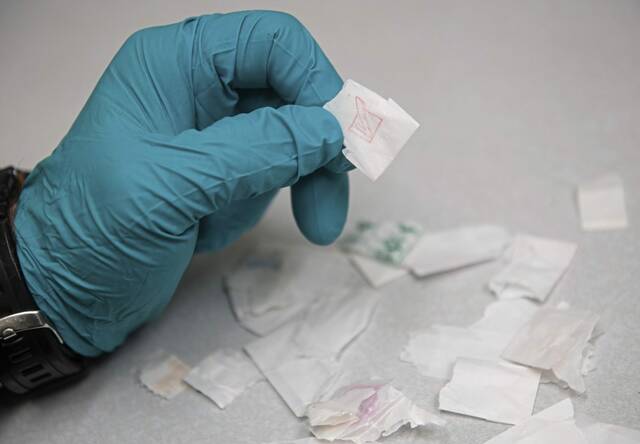The overdose crisis has not gone away, and overdose deaths are, once again, on the rise. Sadly, 2020 marked a grim milestone in the United States: More than 93,000 people died from accidental drug overdoses, the highest annual death toll yet.
Fatal overdoses are the leading cause of injury deaths in the United States, more than car crashes or gun deaths. Preliminary data in Allegheny County report there were 311 total overdose deaths in the first quarter of 2020, which is a 44% increase compared to the same time period in the previous year.
Decriminalizing fentanyl test strips and making them widely available are two small steps we can do to save lives. People have been overdosing from illicit unknown amounts of potent fentanyl for years. Fentanyl test strips allow someone to test their supply and adjust how they use substances in order to keep themselves and others safe.
On Aug. 31, Pittsburgh Mayor Bill Peduto signed an executive order allowing for possession, distribution and use of fentanyl test strips, following Philadelphia’s executive order in early August. When overdose deaths keep increasing, it is dangerous and negligent policy to have drug paraphernalia laws that classify fentanyl test strips as illegal.
People are dying, yet due to outdated laws that do not coincide with current public health science, it is difficult to provide needed interventions to people where they access other harm reduction services. A broad swath of interventions to reduce overdose deaths is needed in Pittsburgh, Allegheny County and across the state.
Fentanyl test strips will not only reduce overdose deaths, but offering them through expanded syringe services may bring individuals with substance use disorders in contact with harm reduction services. There is over 30 years of evidence that access to syringe service programs leads to reduced risk for drug-related harms and improved health outcomes, which includes a decreased transmission of HIV and Hepatitis C.
It has also shown that offering syringe services does not lead to increases in drug use, overdose or crime, and is an essential part of an effective response to opioid use. Decriminalizing the possession and distribution of syringes by amending or suspending sections of the Pennsylvania Controlled Substance, Drug, Device and Cosmetic Act would resolve this issue and allow for the expansion of a public health response.
In our region, Prevention Point Pittsburgh has done work tirelessly to support interventions at every level to reduce overdose risk. In addition to fentanyl test strips, they provide naloxone, commonly known as Narcan, the lifesaving overdose reversal agent, as well as sterile supplies, communicable disease testing and access to many more resources.
As the public has become more alarmed by the unacceptable increases in death, injury, illness, and other social and economic costs of the situation, employing interventions that have demonstrated success in reducing overdose deaths and providing non-judgmental and welcoming support for people who use drugs is a must. We applaud the City of Pittsburgh taking the step to allow for use of fentanyl test strips and we hope Allegheny County will follow suit.
Until Pennsylvania as a state acts on these opportunities, Pittsburgh can continue to lead the way in providing access to harm reduction services, paving the way for access to lifesaving resources and bolstering the public health response to the overdose epidemic.
Jane Liebschutz, Jean FitzGibbons and Mary Sligh are members of the Prevention Point Pittsburgh board of directors.








